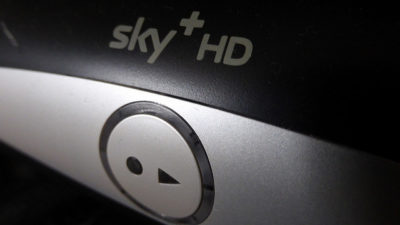 There have been a number of moves recently to curb the influence of betting on the most vulnerable in society. Arguably the biggest such move is the government’s decision to reduce the maximum stake on Fixed Odds Betting Terminals from £100 to £2, with the announcement that the reduction won’t actually happen until October 2019 causing anger amongst opponents of the machines.
There have been a number of moves recently to curb the influence of betting on the most vulnerable in society. Arguably the biggest such move is the government’s decision to reduce the maximum stake on Fixed Odds Betting Terminals from £100 to £2, with the announcement that the reduction won’t actually happen until October 2019 causing anger amongst opponents of the machines.
The Labour Party, meanwhile, has vowed to ban the use of credit cards for online betting and to limit the number of averts from betting companies during football matches, should they get into power at the next General Election.
They are just some of the party’s proposals, of course, with the Deputy Leader Tom Watson having branded problem gambling as a ‘public health emergency’. It’s causing betting companies to take a look at their own behaviour and see if there are ways in which they can reduce the chance of government interference into their operating behaviour.
One such way in which they have attempted to ‘self-police’ includes a call from the owner of Ladbrokes for a ban on adverts shown on TV before 9pm, with the amount of money spent on such adverts having increased exponentially since the Labour government, ironically enough, scrapped the strict rules on betting adverts back in 2007. Now Sky has introduced something of a ban of its own, as I’ll explain here.
What Have Sky Announced?
Sky have announced that they will impose a limit on gambling adverts that they allow to be shown during commercial breaks to just one. The limit will apply to all channels that the company sells slots for adverts, which includes the US media group Viacom owned Channel 5.

Credit: Sean MacEntee (flickr
It is a major shift from the corporation, given that they currently offer up to four slots to betting companies and those during live football matches on Sky Sports particularly in demand. The rules will apply to all forms of gambling, meaning that the likes of online poker and bingo will be included in the restriction.
The move will cost the company tens of millions of pounds a year, given that gambling adverts currently account for somewhere in the region of £200 million in television sales and Sky is believed to control around half of the market. The exact figures aren’t easy to calculate because the company auctions its slots for adverts on Sky Sports, meaning that the curtailment of supply will likely see prices rise as a response.
The company has also confirmed that technology will be introduced to its set-top boxes from 2020 that allows customers to exclude gambling adverts in their entirety during commercial breaks. The cable operator Virgin Media will also offer similar technology that will result in a different advert being shown for those that have ‘opted out’ of seeing gambling adverts.
Sky Are Responding To Customer Concerns
The Chief Executive of the UK branch of Sky, Steven van Rooyen, confirmed that part of the reason that the company has made such a bold decision is that Sky customers have expressed their concerns regarding the amount of gambling adverts being shown on their channels. He said, “We understand their concerns. That’s why we’ve committed to limiting the amount of gambling ads on Sky and better protecting those vulnerable to problem gambling”.
He also suggested that the likes of Google and Facebook should do more to limit the number of adverts shown online, given that’s one part of the industry that is entirely unregulated at present. He said, “There is still a real danger online – and there will be until online platforms are regulated as tightly as TV”. It’s a notion that is backed up by the Gambling Commission, which believes that one in ten children are following the social media accounts of betting companies, means that there is some basis for van Rooyen’s assertion that television is now a ‘safe space’ in comparison to the internet.
What The Response Has Been
Whilst the new rules on gambling adverts won’t come into effect on Sky until the start of the next Premier League season in August of 2019, it is a move that has still be widely applauded by those that are concerned about the rising number of people who have a problem with gambling.
 Money and Mental Health, which is a charity, suggested that Sky’s move would increase the general momentum across the betting industry to ‘tackle problem gambling’. It matches the thoughts of other charities that have warned that the recent proliferation of gambling adverts could lead to children believing that betting is just a regular part of life and might create a ‘ticking time bomb’ for their future.
Money and Mental Health, which is a charity, suggested that Sky’s move would increase the general momentum across the betting industry to ‘tackle problem gambling’. It matches the thoughts of other charities that have warned that the recent proliferation of gambling adverts could lead to children believing that betting is just a regular part of life and might create a ‘ticking time bomb’ for their future.
Sky’s biggest rival in terms of sports coverage, BT Sport, have said that they ‘already limit’ the number of gambling-based adverts that they show, but that they’ll review their approach to the subject inline with the Advertising Standards Agency’s advice. They also said that they’ll continue to support GambleAware’s initiative into ‘responsible gambling’.
The Chief Executive of William Hill, Philip Bowcock, believes that there are still ‘further steps that could be taken around live sport’, so don’t expect this to be the end of the subject as far as they’re concerned.
Has The Sale Of Sky Bet Changed Their Thinking?
 It has been a year of change for Sky, not least of all because of the company’s sale to the US media and telecoms group Comcast earlier in the year. That came on the back of a £30 billion takeover battle involving the Murdoch family and Disney and means that there is now a bigger company to absorb any potential financial losses as a result of the sale.
It has been a year of change for Sky, not least of all because of the company’s sale to the US media and telecoms group Comcast earlier in the year. That came on the back of a £30 billion takeover battle involving the Murdoch family and Disney and means that there is now a bigger company to absorb any potential financial losses as a result of the sale.
There are some that are suspicious of the timing of the company’s decision, however, believing that the £3.4 billion sale of Sky Bet to the Canadian company Stars Group earlier this year has meant that Sky are not as bothered about restrictions to gambling companies as they don’t have ‘skin in the game any longer.
Whether there’s any truth in that or not, it’s certainly true that gambling adverts have become big business for television companies. According to research carried out by the Daily Mail, there were three hundred and twenty-two such ads during twenty-six football matches screened on BT Sport and Sky Sports across the Christmas period in 2017. That amounts to the equivalent of around twelve per match, starting with the build-up and heading through to the end of the post-match analysis.
Little wonder, then, that so many people are concerned about the spreading endemic of gambling in sport. Sky’s move will curtail that slightly, though their friendly arrangement with Stars Group over Sky Bet might mean that they get preferential treatment when it comes to which ads appear onscreen during football matches.



